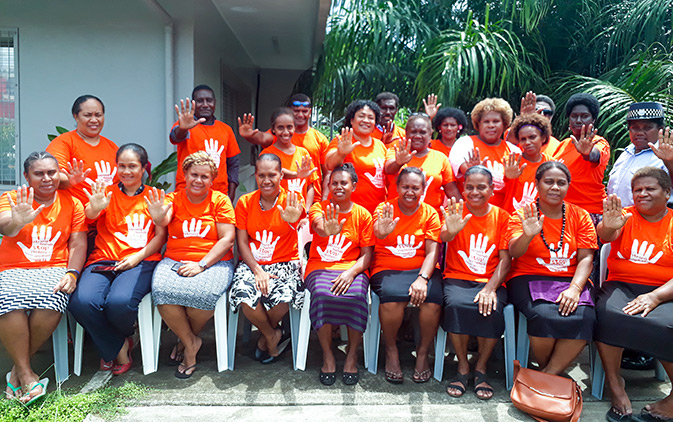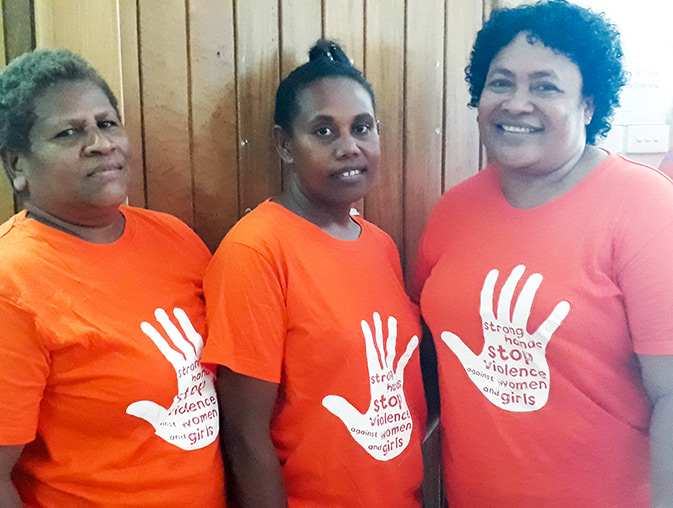Improving the nation's SAFENET to prevent violence against women and girls
Date:

Joint Press Release
Solomon Islands — More than 20 people from government and non-government organisations gathered during the 16 Days of Activism against Gender-Based Violence for a workshop to further improve services for women and girl survivors.

Members of the SAFENET network and Essential Service Package (ESP) for Women and Girls Subject to Violence partnership, attended a workshop held at the Central Bank in Honiara on 5 December - almost three months since the official launch of both the revised SAFENET Memorandum of Understanding (MoU) and ESP in Solomon Islands.
"We thought it timely to have the members of this network regroup during the 16 Days campaign and assess how their various services are aligning to the SAFENET protocols, and the ESP, to improve services to survivors of sexual and gender based violence (SGBV)," said Alvina Erekali, UN Women Country Programme Coordinator for Solomon Islands.

"SAFENET highlights for Solomon Islands the importance of its frontline line service providers to be coordinated and gender sensitized to enable effective SGBV service delivery," Ms Erekali said.
"For this reason, a key focus areas during today's workshop has been to look at our responsibilities, as well as survivor centred and human rights based approaches and principles we need to use when helping women and girl survivors," Ms Erekali said.
SAFENET is a network of government and non-government organizations made up of four inter-connected components to strengthen referral and coordination of SGBV services: SGBV direct services and support; referral to other service providers through an agreed and coordinated formal referral process; prevention and advocacy programs; and, governance and accountability framework.
The Essential Services Programme aims to provide greater access to coordinated, quality, multi-sectoral services for women and girl survivors seeking help and is a partnership between the Solomon Islands Government's Ministry of Women, Youths, Children and Family Affairs (MWYCFA), Ministry of Health and Medical Services (MHMS), Family Support Centre, and the United Nations (UN).
At the workshop, the SAFENET Acting Coordinator Nashley Vazoto reiterated how the ESP provides a coordinated set of tools and resources, along with minimum standards.
"The essential services tools and guidelines identify the essential actions to be provided by health, social services, police and justice sectors as well as guidelines for coordination and governance, to ensure the delivery of high quality services," said Mr Vazoto.
"By better coordinating improved services across sectors - from health to social service, justice, policing and other sectors - we significantly increase the likelihood of women and girl survivors getting the quality assistance they need, and when they need it," said Mr Vazoto.
The Essential Services Programme is a global joint-UN programme involving UN Women, UNFPA, WHO, and UNDP that is coordinated in Solomon Islands by UN Women Fiji Multi-Country Office (MCO) and funded by the Australian Government.